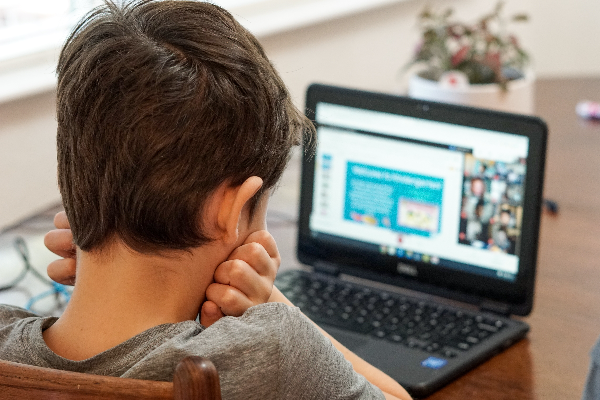The ultimate guide to keeping your child safe online
 In today's digital age, kids are exposed to technology from a very young age. While the internet offers a wealth of information and entertainment for children, it also poses various online safety risks, including cyberbullying, inappropriate content, and online predators. As a parent, it's essential to educate yourself and your child about online safety to ensure their well-being. In this blog post, we'll provide you with some tips and resources to help you navigate online safety for your kids.
In today's digital age, kids are exposed to technology from a very young age. While the internet offers a wealth of information and entertainment for children, it also poses various online safety risks, including cyberbullying, inappropriate content, and online predators. As a parent, it's essential to educate yourself and your child about online safety to ensure their well-being. In this blog post, we'll provide you with some tips and resources to help you navigate online safety for your kids.Set Ground Rules and Boundaries
Setting ground rules and boundaries for your child's online activity is crucial in ensuring their safety. Be clear about what is and isn't acceptable behaviour online, and set limits on the amount of time they spend online. Make sure your child knows not to share personal information, such as their name, address, or phone number, with strangers online.
Use Parental Controls and Monitoring Tools
Parental controls and monitoring tools are an excellent way to keep your child safe online. You can use them to block inappropriate content, limit access to certain websites or apps, and monitor your child's online activity. Some popular parental control tools include Net Nanny, Qustodio, and Norton Family.
Educate Your Child About Online Safety
Teaching your child about online safety is the best way to ensure their safety. Start by discussing the risks associated with being online and the importance of not sharing personal information. Explain how to recognize and avoid suspicious links, pop-ups, and requests for personal information. Additionally, make sure your child knows how to report any suspicious activity to you or a trusted adult.
Keep Communication Lines Open
Open communication is key to maintaining your child's online safety. Encourage your child to talk to you if they see something online that makes them uncomfortable or if they receive messages from strangers. Let them know that you won't judge them, and you're there to help them if they need it.
Conclusion
In conclusion, as a parent, it's essential to be proactive in keeping your child safe online. By setting ground rules, using parental controls and monitoring tools, educating your child about online safety, and keeping communication lines open, you can help your child navigate the online world safely. Remember, staying informed and engaged with your child's online activity is crucial to keeping them safe. Use the resources available to you to help you stay ahead of potential risks and empower your child to use technology in a safe and responsible way.
 Blog
Blog